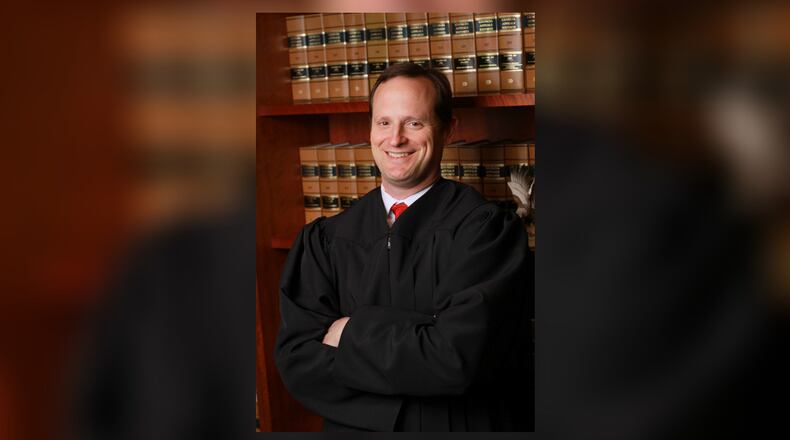In a display of camaraderie, Fulton County’s State Court judges are taking some civil cases from Superior Court to help those judges resolve criminal cases in which defendants have been languishing in jail for months awaiting trial.
Under an agreement, each of the county’s 16 Superior Court judges who preside over civil lawsuits can temporarily assign up to 10 trial-ready cases to State Court judges who can then try to resolve them through settlements or trials. The highly unusual arrangement was put in place this month and is expected to last through the end of this year.
“We’ve been looking at how to deal with some of the criminal cases that have stacked up because of the pandemic,” Superior Court Judge Robert McBurney said. “It was a very gracious suggestion, so we took them up on it.”
This will allow Superior Court judges to try to resolve cases for defendants who have not stood trial even though they were indicted more than a year ago, McBurney said.
Credit: HYOSUB SHIN / AJC
Credit: HYOSUB SHIN / AJC
“We’ve got more older cases than we did pre-pandemic,” he said. “This is a great opportunity that will help us focus more in the short term on older jail cases.”
At the busy Fulton courthouse, McBurney presided over the high-profile special purpose grand jury investigation into possible criminal meddling with the 2020 presidential election. The months-long jury selection in the “Young Slime Life” gang racketeering trial is also underway and still on the docket is the pending death-penalty case against alleged spa shooter Robert Aaron Long.
McBurney said he expects at least half of the county’s 16 Superior Court judges who preside over civil lawsuits will take the State Court bench up on its offer and hopes even more will do so.
Wes Tailor, chief judge of Fulton State Court, called the arrangement “relatively unprecedented.” He said eight of the court’s 10 judges have signed on to help the county’s Superior Court judges.
“I have colleagues who are about the greater good, not just themselves,” Tailor said. “They certainly should be commended because they didn’t have to do this. I work with public servants who are willing to go above and beyond what they are called to do.”
Adam Malone, past president of the Georgia Trial Lawyers Association, said Chief Superior Court Judge Ural Glanville recently notified his organization about the court’s new arrangement. “I expect our membership will be fully supportive and applaud our Fulton County judges for their creativity and forward thinking,” the Atlanta plaintiff’s attorney said.
The county’s State Court judges already have busy calendars, largely attributable to steady increases of lawsuit filings over the past five years, Tailor said. Yet the court’s judges have been able to clear civil cases at a good clip and have, on average, the same number of open, pending cases as they did in 2019, he said.
State Court judges also preside over misdemeanor criminal cases. Over the first three months of this year, the court has been able to resolve far more cases — disposing them at a 144 percent clearance rate — than the number of new cases coming in. “That’s part of why we felt comfortable doing this,” Tailor said.
Overcrowding at the Fulton jail has been an ongoing issue, and the county has had to pay other jails to house its overflow of those awaiting trial.
“We know this has been a problem,” Tailor said. “This seemed like the best way to help the Superior Court address those cases more quickly.”
About the Author
Keep Reading
The Latest
Featured






